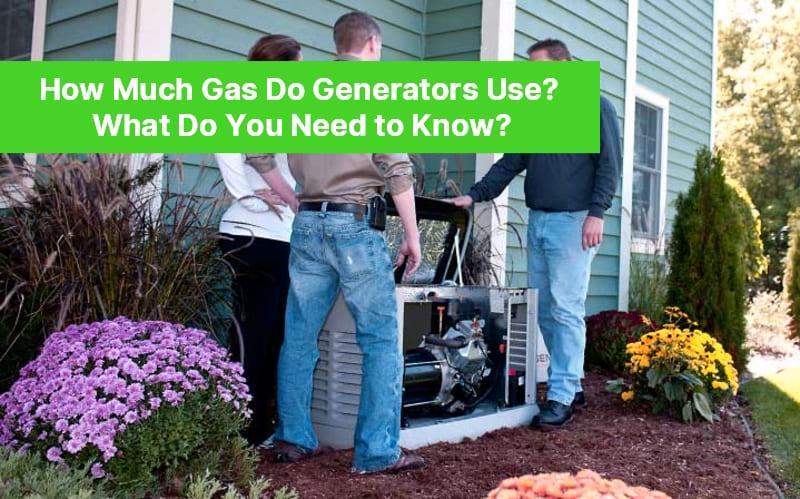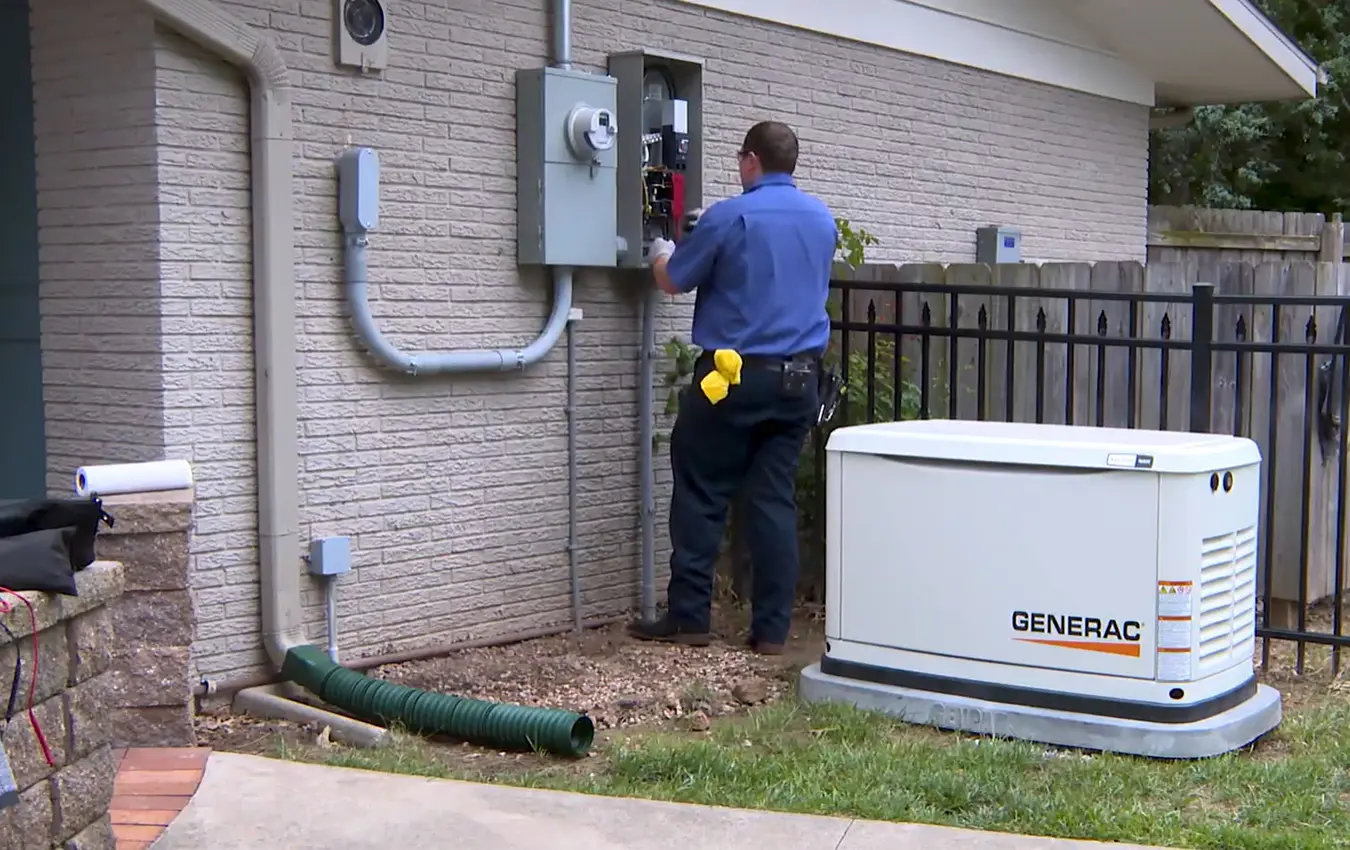When it comes to generators, there are many factors to consider, and one of the most important is fuel consumption. Whether you’re using a generator for emergency power backup or outdoor activities, knowing how much gas it uses can help you plan accordingly and avoid any surprises. In this article, we’ll take a deep dive into the topic of generator fuel consumption and explore everything you have to know, from the different types of generators and their fuel efficiency ratings to how to calculate your gas needs based on your usage patterns. So, if you’re thinking of investing in a generator or just want to be more informed about your current one, keep reading to learn more!
Understanding generator wattage and fuel consumption
Before we dive into the details of fuel consumption, it’s important to understand how generator wattage and fuel consumption are related. The wattage of a generator determines how much power it can produce, and this power output is directly related to fuel consumption. Basically, the more power a generator produces, the more fuel it will consume.
For example, a 1000-watt generator will use less fuel than a 5000-watt generator because it produces less power. However, it’s also important to note that the efficiency of a generator can also affect fuel consumption. A more efficient generator will use less fuel to produce the same amount of power as a less efficient generator.
Factors that affect fuel consumption
Generators can run on a variety of fuels, including gasoline, diesel, propane, and natural gas. Each type of fuel has different energy densities and burn rates, which can influence fuel consumption. For example, diesel generators tend to be more fuel-efficient than gasoline generators, but they also tend to be pricier. Propane and natural gas generators can be a good choice for those who have access to a steady supply of these fuels, but they may not be practical for those who need to use their generator in remote locations.
Size of engine
There are several factors that can impact the fuel consumption of a generator, including the type of fuel it uses, the size of its engine, and the load it is powering. Let’s take a closer look at each of these factors: Type of fuel
The size of a generator’s engine is another factor that can affect fuel consumption. Generally speaking, larger engines will consume more fuel than smaller engines, but they will also be able to produce more power. It’s important to choose a generator with an engine size that is appropriate for your power needs. Using a generator with a larger engine than you need can result in unnecessary fuel consumption.
There are several factors that can impact the fuel consumption of a generator, including the type of fuel it uses, the size of its engine, and the load it is powering. Let’s take a closer look at each of these factors: Type of fuel
Load
The load that a generator is powering is another factor that can alter fuel consumption. A generator that is powering a heavy load will consume more fuel than one that is powering a lighter load. It’s important to decide on a generator with a power output that is appropriate for your needs to avoid wasting fuel.
Looking for a backup generator for your home?
The best way to find out which standby generator is right for you is to get a consultation and quote. Call to find out more at 954-900-1696 or request a quote
How to calculate fuel consumption for your generator
Now that you understand the factors that can affect fuel consumption, let’s take a look at how to calculate fuel consumption for your generator. The first step is to determine the wattage of your generator. This information can usually be found in the owner’s manual or on the generator itself.
Once you know the wattage of your generator, you can use the following formula to calculate fuel consumption:
The fuel efficiency rating is typically expressed in gallons per hour (GPH) or liters per hour (LPH) and can also be found in the owner’s manual or on the generator itself. Keep in mind that this formula provides an estimate of fuel consumption and may not be completely accurate in all situations.
Types of generators and their fuel requirements
There are several types of generators available on the market, each with its fuel requirements and efficiency ratings. Let’s take a closer look at some of the most common types of generators:
Gasoline generators
Gasoline generators are the most common type of generator and are widely available. They are typically less expensive than other types of generators, but they also tend to be less fuel-efficient. Gasoline generators require regular maintenance, including oil changes and spark plug replacements.
Diesel generators
Diesel generators are generally more fuel-efficient than gasoline generators and are often used in industrial settings. They tend to be pricier than gasoline generators, but they also tend to last longer. Diesel generators require regular maintenance, including oil changes and fuel filter replacements.
Propane generators
Propane generators are a good choice for those who have access to a steady supply of propane. They tend to be more fuel-efficient than gasoline generators and produce fewer emissions. Propane generators require regular maintenance, including inspections of the fuel system and regulator.
Natural gas generators
Natural gas generators are similar to propane generators but use natural gas instead of propane. They are a good choice for those who have access to a steady supply of natural gas. Natural gas generators tend to be more fuel-efficient than gasoline generators and produce fewer emissions. They require regular maintenance, including inspections of the fuel system and regulator.
Tips for reducing generator fuel consumption
There are several steps you can take to reduce the fuel consumption of your generator and save money on fuel costs. Here are a few tips:
- Choose a generator with an appropriate engine size for your needs to avoid wasting fuel.
- Use the eco-mode feature if your generator has one. This feature reduces fuel consumption by running the engine at a lower speed when less power is needed.
- Keep your generator well-maintained to ensure that it is running efficiently.
- Turn off any appliances or devices that are not in use to reduce the load on your generator and save fuel.
- Consider investing in a battery backup system to reduce the need for your generator.
Importance of fuel efficiency in emergencies
In emergencies, fuel efficiency becomes even more important. During a power outage, you may rely on your generator to power essential appliances and devices, such as medical equipment or communication devices. If your generator is not fuel-efficient, you may run out of fuel before power is restored, leaving you without power when you need it most.
It’s important to choose a fuel-efficient generator and to have a backup plan in case you run out of fuel. This could include having extra fuel on hand or having a plan in place to recharge batteries using a solar panel or other renewable energy source.
Frequently asked questions about generator fuel consumption
Here are some common questions people have about generator fuel consumption:
How long will a generator run on a tank of gas?
The answer to this question depends on the size of the generator’s fuel tank, the efficiency of the generator, and the load it is powering. Most generators will provide an estimate of run time based on a certain load and a full tank of fuel.
How much gas does a generator use per hour?
The amount of gas a generator uses per hour depends on the wattage of the generator, the efficiency of the generator, and the load it is powering. You can use the formula we discussed earlier to calculate fuel consumption.
How can I tell how much fuel is left in my generator’s tank?
Most generators have a fuel gauge that provides an estimate of how much fuel is left in the tank. You can also use a dipstick to manually check the fuel level.
Generator fuel consumption comparison chart
Here is a comparison chart of some common types of generators and their fuel efficiency ratings:
| Generator Type | Fuel Efficiency Rating |
| Gasoline | 0.5-1.5 gallons per hour |
| Diesel | 0.25-0.5 gallons per hour |
| Propane | 0.25-0.5 gallons per hour |
| Natural gas | 0.25-0.5 gallons per hour |
Keep in mind that fuel efficiency ratings can vary depending on the specific generator model and the load it is powering.
Conclusion and final thoughts
Fuel consumption is an important factor to consider when choosing a generator or using a generator you already own. By understanding the factors that affect fuel consumption and how to calculate fuel consumption for your specific generator, you can make informed decisions about how much fuel you need and how to use your generator efficiently.
Remember to select a generator with an appropriate engine size for your needs, keep your generator well-maintained, and consider using eco-mode or other fuel-saving features if they are available. And in emergencies, always have a backup plan in case you run out of fuel. We hope this article has been helpful in answering your questions about generator fuel consumption. If you have any additional questions or comments, feel free to leave them below!
Do not know which standby generator to decide and on what a fuel?
Premier Electrical Services will help you choose which standby generator is right for you is to get a consultation and quote. Call to find out more at 954-900-1696 or request a quote.
Check out the latest news:
- 10 Electrical Hazards of DIY Generator Installation
- Transform Your Living Space: The Benefits of Home Theater Systems
- How to Choose the Right Lighting Fixtures for Your Home or Business
- Don’t Be Left in the Dark: Why Homeowners Should Consider Premier Electrical Services for Backup Generator Installation
- Residential Electrical Wiring: Why You Need a Professional Electrician






